Father to Son Truth, Reason and Decency
By James D. Watson
We're not all equal, it's simply not true. That isn't science.
Biology has at least 50 more interesting years.
Science moves with the spirit of an adventure characterized both by youthful arrogance and by the belief that the truth, once found, would be simple as well as pretty.
A clone of Einstein wouldn't be stupid, but he wouldn't necessarily be any genius, either.
I think the reason people are dealing with science less well now than 50 years ago is that it has become so complicated.
I never dreamed that in my lifetime my own genome would be sequenced.
The luckiest thing that ever happened to me was that my father didn't believe in God, and so he had no hang-ups about souls.
If you succeed with your first dream, it helps. You know, people trust you, possibly, for the second one. They give you a chance to play out your second one.
I am thrilled to see my genome.
My heroes were never scientists. They were Graham Greene and Christopher Isherwood, you know, good writers.
Some think there is something wrong about enhancing people.
You've never heard of an English lover. Only an English patient.
Our goal should be to understand our differences.
The pace of discovery is going unbelievably fast.
I wanted to see if I could write a good book.
You can't change the world without offending it.
I am putting my genome sequence on line to encourage the development of an era of personalized medicine, in which information contained in our genomes can be used to identify and prevent disease and to create individualized medical therapies.
It's necessary to be slightly underemployed if you are to do something significant.
Take young researchers, put them together in virtual seclusion, give them an unprecedented degree of freedom and turn up the pressure by fostering competitiveness.
At lunch Francis winged into the Eagle to tell everyone within hearing distance that we had found the secret of life.
There have been a lot of convincing studies recently about the loss of productivity in the Western male. It may be that entertainment culture now is so engaging that it keeps people satisfied. We didn't have that. Science was much more fun than listening to the radio.
Today, the theory of evolution is an accepted fact for everyone but a fundamentalist minority, whose objections are based not on reasoning but on doctrinaire adherence to religious principles.
As an educator, I have always striven to see that the fruits of the American Dream are available to all.
One could not be a successful scientist without realizing that, in contrast to the popular conception supported by newspapers and mothers of scientists, a goodly number of scientists are not only narrow-minded and dull, but also just stupid.
I have a son, who is a... not an ordinary form of schizophrenia, but clearly, cannot take care of himself. And the great fear of then, of all parents is, when the parents die, who takes care of your child? And the answer is: they become homeless.
The ever quickening advances of science made possible by the success of the Human Genome Project will also soon let us see the essences of mental disease. Only after we understand them at the genetic level can we rationally seek out appropriate therapies for such illnesses as schizophrenia and bipolar disease.
I don't think we're for anything, we're just products of evolution. You can say "Gee, your life must be pretty bleak if you don't think there's a purpose," but I'm anticipating a good lunch.
Never do anything that bores you. My experience in science is that someone is always telling you to do things that leave you flat. Bad idea. I'm not good enough to do well something I dislike. In fact, I find it hard enough to do well something that I like.
The brain is the last and grandest biological frontier, the most complex thing we have yet discovered in our universe. It contains hundreds of billions of cells interlinked through trillions of connections. The brain boggles the mind.
To succeed in science, you have to avoid dumb people... Even as a child, I never liked to play tag with anyone who was bad as I was. If you win, it gives you no pleasure. And in the game of science-or life-the highest goal isn't simply to win, it's to win at something really difficult. Put another way, it's to go somewhere beyond your ability and come out on top.
I couldn't have got anywhere without Francis....It could have been Crick without Watson, but certainly not Watson without Crick.
We wanted to do the equivalent of what a word processor can now achieve: to cut, paste, and copy DNA... Recombinant DNA technology was no ordinary advance in lab technique. Scientists were suddenly able to tailor DNA molecules, creating ones that had never before been seen in nature. We could "play God" with the molecular underpinning of all of life.
No one may have the guts to say this, but if we could make better human beings by knowing how to add genes, why shouldn't we?
There is only one science, physics: everything else is social work.
If we don't play God, who will?
Never be the brightest person in the room.
I just can't sit while people are saying nonsense in a meeting without saying it's nonsense.
Be sure you have someone up your sleeve who will save you when you find yourself in deep s-.
About the Author
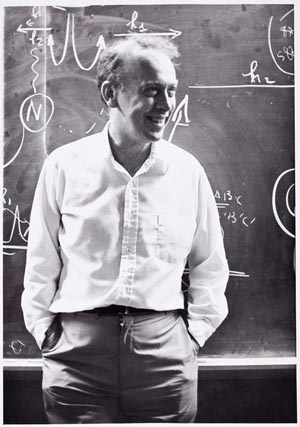
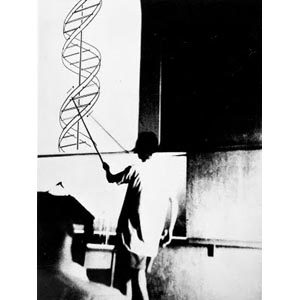
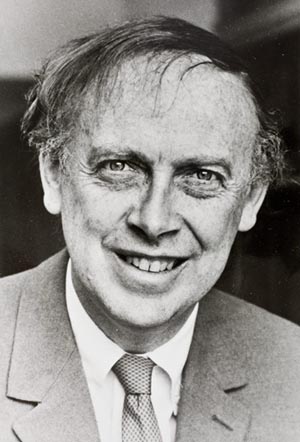
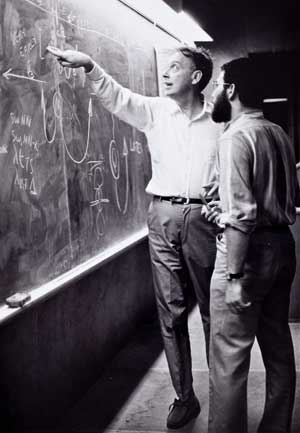
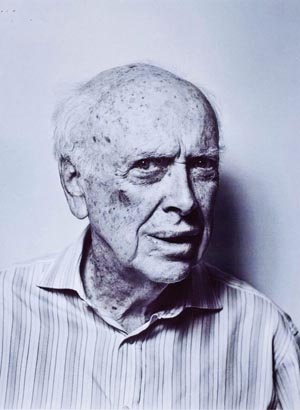
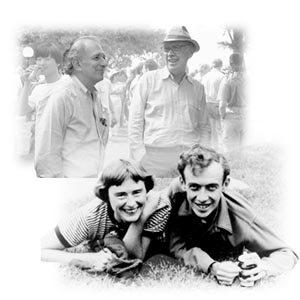
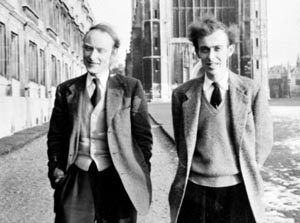
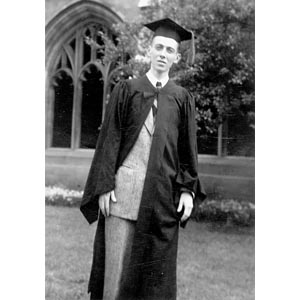
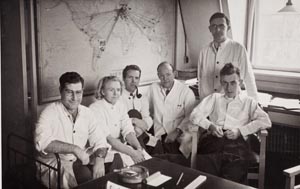

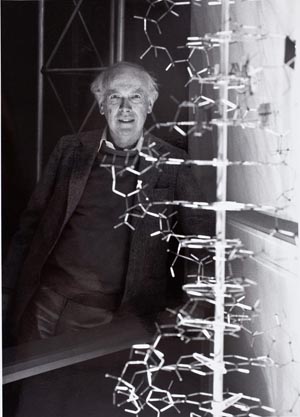
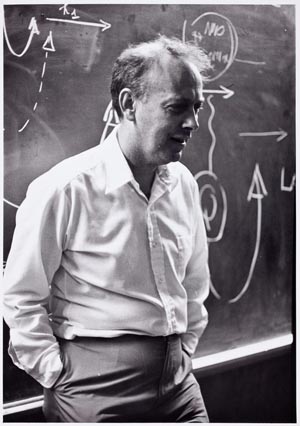
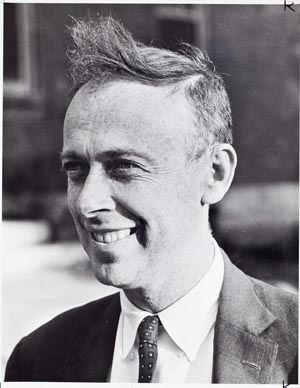
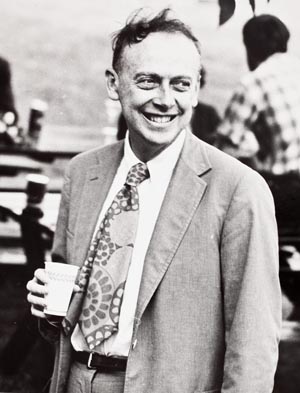
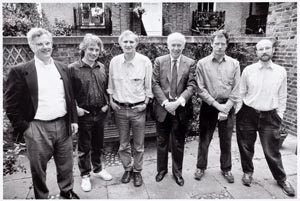
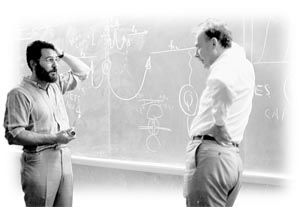
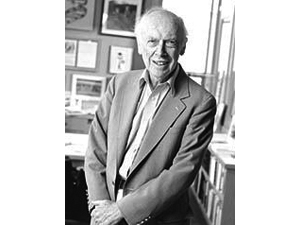
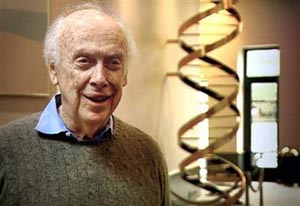
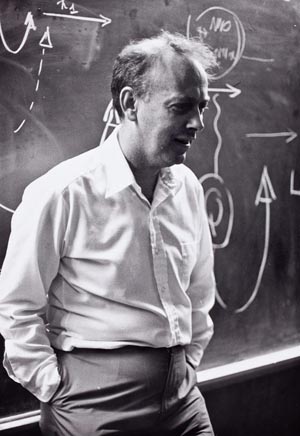
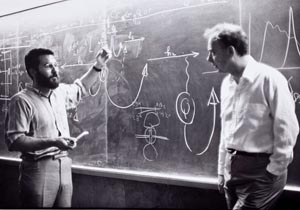
I was born in 1928 in Chicago. My boyhood scientific interest was ornithology. But by the time I finished college at the University of Chicago in 1947, I wanted to study the gene. That I first did seriously at Indiana University, finishing my Ph.D. there in the spring of 1950. My thesis research was on X-ray inactivation of bacteriophage, a project that first sharpened my interest in DNA. Then, in focusing on viruses, I hoped I was studying naked genes. Starting in the fall of 1951 in England, Francis Crick and I began making 3-D models of DNA at the Cavendish Physics Laboratory of Cambridge University. Eighteen months later, early in 1953, we found the double helix. Following a subsequent several-year stay at the California Institute of Technology, I became a member of the faculty of Harvard University in 1956, remaining there as a professor until 1976.
I became director of Cold Spring Harbor Laboratory in 1968, first making it my main home in 1974. From 1988 to 1992, I was the first director of the NIH component of the Human Genome Project. In January 1994, at the age of 65, I ceased being director of Cold Spring Harbor Laboratory and assumed the title of president. Ten years later, I assumed the title of chancellor. My long-term interest in education is most tangibly demonstrated by my helping generate three widely used textbooks: Molecular Biology of the Gene, Molecular Biology of the Cell, and Recombinant DNA.
—James D. Watson


